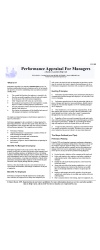Companies Don’t Have It Within Their Power To Increase Employee Engagement and Employee Effort
One of the assumptions underlying company efforts to improve employee engagement is that the company is in control of the factors that will increase it. After all, the billion dollars or so invested every year in getting employees more engaged doesn’t make any sense if engagement is like the weather, something we talk a lot about but over which we have control.
What Affects Increases In Employee Effort
In fact, the factors that determine employee effort lie with the employee. Employees choose their levels of commitment, loyalty and effort, and while the company can DAMAGE commitment and effort by doing dumb things, companies cannot improve it.
So, what factors affect an individual’s level of commitment to their job, or their employer?
- Level of ambition
- Time of life
- Work history
- Family commitments and other priorities
- Work ethic
- Values and beliefs about employment, and indeed about life
- Attitudes they bring to the workplace in the first place
and a host of other factors that belong to the individual
Organizations cannot improve effort and engagement on the part of employees because the factors that control those things lie primarily with the employee. However, organizations can DE-motivate or DISENGAGE STAFF by bad decisions. That’s why over the last ten years, despite billiions of dollars spent in the attempt, employee engagement scores haven’t gone up.
Human beings don’t enter workplaces as blank slates. They bring their own experience, values and so on to the workplace, much of which is fully formed. Those things, since they are formed by a lifetime of previous experience, are exceedingly hard to change by anything a company does.
What an employee brings with him or her TO the company is most likely to remain fundamentally unchanged by the work environment, at least in a positive direction.
Employees have their pre-existing priorities. Imagine for example, a person in his or her twenties who values spending time with his or her children, and so decides to limit the amount of effort and time s/he is willing to spend at work. Is there anything a company can do to “get” that person to go above the normal requirements of the job? Not likely. You cannot force someone to shift their priorities and expect success. That person, as measured by employment engagement surveys is almost certainly going to fall in the unengaged category, not because they don’t care about their jobs or their careers, but because there are other things that are as important, or more important.
Commitment And Effort Are Finite Resources
It’s important to understand that the effort an employee is willing to put in on the job isn’t in isolation from all the other things that are important to him or her. A person can be very commited to a job, but more committed to family, or church or another passion, and will a) balance effort to suite those priorities, and b) may appear disengaged, simply because other things are important. And, we might add, that person can be an excellent performer.
What Impact CAN Companies Have On Employee Motivation And Engagement?
That’s not to say what companies do has zero effect. While the factors that cause effort, and engagement are beyond the control of organizations, the factors that CAUSE DE-ENGAGEMENT can be affected by what organizations do.
In short, companies can demotivate, but NOT motivate. They can erode loyalty, but it s hard to create loyalty. They can destroy employee effort, but they cannot appreciably improve it.





